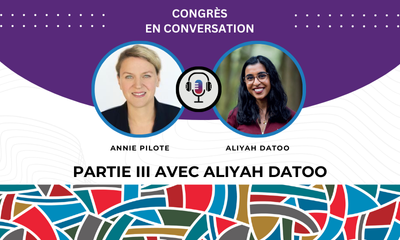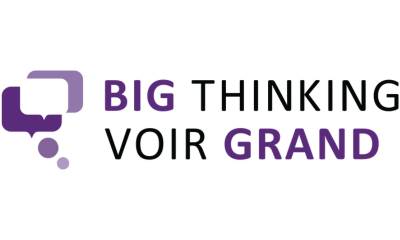VANCOUVER, June 1, 2019 — The impact of climate change on mental health, reconciliation and inequality is one of the hot topics this week as the Congress of the Humanities and Social Sciences gets underway at The University of British Columbia. Canada’s largest academic gathering, Congress brings 8,000 of the country’s brightest researchers, thinkers, and policy-makers to Vancouver from June 1-7.
Over 5,000 pieces of research are being presented on a wide range of topics. Some of the environment and energy issues being explored include:
- Environmental Despair: Exploring the Impact of the 2018 New Brunswick Spring Flood on Residents’ Mental Health
In 2018, 12,000 New Brunswick homes were impacted by floods, affecting residents’ abilities to feel safe and secure. The evidence from this study suggests a clear need to address the effects of environmental despair on mental health.
June 5 — 3:00 - 5:00 pm
- Beyond Climate: Science, Storytelling and Solutions
David Suzuki and Ian Mauro will screen their latest film, Beyond Climate, and engage in conversation with the audience. The film addresses many of the pressing issues facing BC — including pipelines, liquified natural gas, salmon, and Indigenous rights.
June 4 — 7:00 - 9:00 pm
- The Sociology of Fossil Fuels: A Glimpse into Power, Politics and Inequality in Canada
What are the social and environmental costs of fossil fuels? How do different actors in society bear the burden of these costs? How did we arrive at this moment, when private, fossil fuel companies have so much power over our governments?
June 3 — 3:30 - 5:00 pm
- Climate Impacts: Our Changing Arctic Roundtable
Climate change in the arctic affects mental health, cultural resilience, and efforts at reconciliation and self-government. This panel will examine climate change in the Arctic from the overlapping perspectives of Indigenous peoples, the social sciences, and the humanities.
June 4 — 10:30 am - 12:00 pm
Participants include:- Dalee Sambo Dorough, International Chair, Inuit Circumpolar Council
- Anna Hudson, York University
- Tony Penikett, Simon Fraser University, and former Premier of the Yukon
- Frédéric Lasserre, Université Laval
- Why are We So Afraid of GBA+: Troubling Debates in Resource Extraction Impact Assessment
Discussion of gender and gender analysis has largely been missing from the debates around resource extraction. When gender is mentioned, it is often presented as irrelevant or 'bad for business.' This research unpacks some of the key messages in these debates to determine why.
June 2 — 1:30 - 3:30 pm
Congress is organized by the Federation for the Humanities and Social Sciences, which promotes research and teaching for the advancement of an inclusive, democratic and prosperous society. With a membership now comprising over 160 universities, colleges and scholarly associations, the Federation represents a diverse community of 91,000 researchers and graduate students across Canada. Congress 2019 is hosted by The University of British Columbia.
The Congress 2019 media kit can be downloaded here.
More information about Congress is available on their website, Twitter and Facebook.
For interview requests
Federation for the Humanities and Social Sciences
Nicola Katz
Manager of Communications
nkatz@ideas-idees.ca
Cell: 613-282-3489
University of British Columbia
Erik Rolfsen
Media Relations Specialist
erik.rolfsen@ubc.ca
Cell: 604-209-3048

Vivre-ensemble
Par Prof. Margrit Talpalaru, professeur.e et responsable académique pour le Congrès 2025 au Collège George Brown Le Collège George Brown (CGB) est le premier établissement d'enseignement supérieur à accueillir le Congrès des sciences humaines au...

Le Congrès en Conversation - Partie III avec Aliyah Datoo
← Page d'accueil du balado Voir Grand Introduction | À propos de l'invitée | La recherche d'Aliyah Datoo au Congrès | Transcription | Suivez nous Introduction Bienvenue au Congrès en Conversation, une série spéciale présentée par le balado Voir...

Faire vivre les communautés politiques
Voir Grand au Congrès 2024 Face aux menaces croissantes qui pèsent sur la démocratie, que peut-on faire pour promouvoir une communauté politique durable? Rejoignez-nous pour une discussion stimulante sur la polarisation politique, l'injustice sociale...
